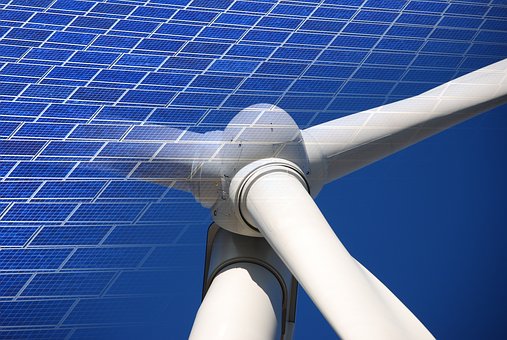U.S. Senate Approves Inflation Reduction Act With Major Provisions for Clean Energy, Climate Action

The U.S. Senate on Aug. 7 approved the Inflation Reduction Act of 2022, which includes $369 billion for energy security and climate change programs over the next ten years. Among the key climate and clean energy provisions, the bill would expand the investment tax credit for clean energy manufacturers, establish the first hydrogen production tax credit worth nearly $8 billion over the next decade, and $10 billion in incentives to support the coal and natural gas industry.
The legislation is expected to deal with unprecedented inflation rates currently evident across the country, by reducing the nation’s national debt, lowering healthcare costs, and increasing U.S. energy production, in order to reduce prices and boost energy security.
The act includes various essential energy and environmental conditions that reinforce the country’s commitment to tackling the climate crisis and protecting the community from its impact, while curbing skyrocketing inflation. The bill would make incomparable investments in climate, clean energy, and environmental justice, while creating new job opportunities and reducing energy costs.
The crucial energy related provisions approved by the U.S. Senate as part of the Inflation Reduction Act, include:
- Methane Emissions Reduction Program designed to hold individual companies accountable for their personal leaks and surplus methane pollution and spur modernisation in the segment.
- Greenhouse Gas Reduction Fund to invest $27 billion to implement low- and zero-emission technologies and solidify the U.S.’s most exposed communities against climate disasters.
- Investing in Clean Energy Innovation and Communities with a spending of more than $15 billion in several loan and grant programs to aid the development of ground-breaking technologies and production of zero emission transportation technologies.
- Climate Pollution Reduction Grants to provide $5 billion through the U.S. Environmental Protection Agency to improve and implement plans to lower climate pollution.
- Supporting Clean Heavy-Duty Vehicles with an investment of $1 billion.
- Appliance and Building Efficiency Rebates with a spending of $9 billion in home energy efficiency and appliance electrification rebates and guarantees that low-income have accessibility to these energy-saving upgrades.
- Industrial Emissions Reductions through an investment of $5.8 billion for establishing and utilizing developed industrial technology at energy intensive industrial and manufacturing plants.
- Environmental and Climate Justice Block Grants – The act provides $3 billion in investment to community-led projects that deal with environmental and public health problems associated with pollution and climate change.
- Ensuring Healthy Ports with an investment of $3 billion to lower air pollution at ports and in the areas that surround them.
EnerKnol Pulses like this one are powered by the EnerKnol Platform—the first comprehensive database for real-time energy policy tracking. Sign up for a free trial below for access to key regulatory data and deep industry insights across the energy spectrum.
ACCESS FREE TRIAL